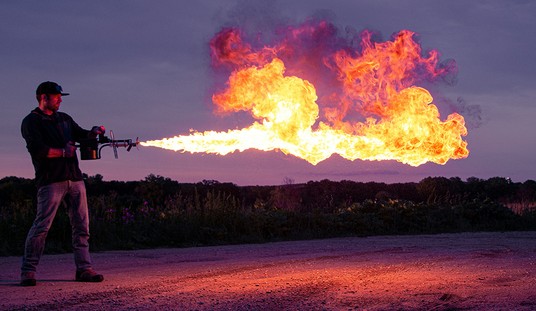The natural world is always full of surprises.
Kira Davis has a post today about an Irish beach eroded away by storms that reappeared 33 years later. There is another story out there this week about the possibility that methane seepage in the Arctic might be slowing global warming.
Good news about climate change is especially rare in the Arctic. But now comes news that increases in one greenhouse gas—methane—lead to the dramatic decline of another. Research off the coast of Norway’s Svalbard archipelago suggests that where methane gas bubbles up from seafloor seeps, surface waters directly above absorb twice as much carbon dioxide (CO2) as surrounding waters. The findings suggest that methane seeps in isolated spots in the Arctic could lessen the impact of climate change.
“This is … totally unexpected,” says Brett Thornton, a geochemist at Stockholm University who was not involved in the research. These new findings challenge the popular assumption that methane seeps inevitably increase the global greenhouse gas burden.
Totally unexpected? How could anything be totally unexpected when “the science is settled?”
Methane is a potent greenhouse gas. Molecule for molecule, it traps nearly 30 times as much heat in the atmosphere as CO2. But scientists know relatively little about its role in the global carbon cycle. Most atmospheric methane comes from biological sources—belching bovines and bacteria feasting on decomposing litter—or from the burning of fossil fuels. In the ocean, methane bubbles up from deep seeps, where it is often stored in icelike crystal lattices of water called hydrates. When those hydrates “melt,” because of changing temperatures and pressures, the methane is released, and it can percolate into the atmosphere above.
Obviously any methane seepage should be contributing to global warming, right? Not so fast.
When combined with other data—sudden drops in water temperature, along with increases in dissolved oxygen and pH at the surface—the lower CO2 levels were telltale signs of bottom water upwelling and photosynthesis, Pohlman says. Pohlman and his team conclude that the same physical forces that are pushing the methane bubbles up are also pumping nutrient-rich cold waters from the sea bed to the surface, fertilizing phytoplankton blooms that soak up CO2, they write today in the Proceedings of the National Academy of Sciences.
Such a “fertilization effect” would be “really surprising,” says Thornton, who has studied methane emissions above seeps in the Laptev and East Siberian seas. “There are lots of nutrients in bottom water and bringing that to the surface could certainly [result in] draw down of CO2.”
Now obviously I’m not submitting this as proof against any particular climate change theory.
However, what it demonstrates is that scientists, like the rest of us, often don’t know what they don’t know. If they’re still being surprised by discoveries related to climate change, then the science is not really settled. It shows that the computer models they use to predict climate doomsday are incomplete at best. They are wild ass guesses based on relatively scant data and both the intentional and unknowing exclusion of many variables. The system is orders of magnitude more complex than their models.
Things like this are the primary reason why I scoff at people who preach scientific consensus as if it were substantially proven fact or even absolute truth. Contrary to what science-ists like Al Gore, Barack Obama, or John Kerry will tell you, climate science is not settled to the same degree as experimentally demonstrable concepts like gravitation. (When they can prove that climate change is an emergency and 100% anthropogenic in a middle school earth science lab, I’ll accept that comparison.)
Just because the star of a bad Netflix series claims every instance of severe weather is proof that climate change is both a disastrous problem and the fault of human beings doesn’t make it so.
Remember that groupthink is a form of consensus.













Join the conversation as a VIP Member